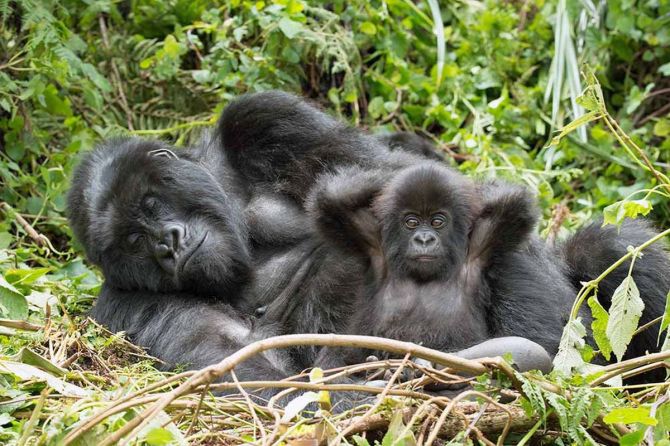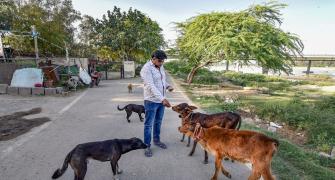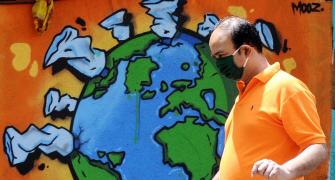San Diego Zoo Safari Park on Monday confirmed that at least two gorillas have contracted coronavirus.

According to the zoo, two of the gorillas had started coughing on Wednesday, following which San Diego Zoo Global initiated the process of testing fecal samples from them for SARS-CoV-2 through the California Animal Health and Food Safety Laboratory System.
On January 8, the preliminary tests detected the presence of the virus in the gorilla troop.
The US Department of Agriculture National Veterinary Services Laboratories confirmed the positive results on Monday.
The test results have confirmed the presence of SARS-CoV-2 in some of the gorillas and have not ruled out the presence of the virus in other members of the troop.
"Aside from some congestion and coughing, the gorillas are doing well... The troop remains quarantined together and are eating and drinking. We are hopeful for a full recovery," said Lisa Peterson, executive director, San Diego Zoo Safari Park."
It is suspected that the gorillas acquired the infection from an asymptomatic staff member, despite following all recommended precautions including COVID-19 safety protocols from the Centers for Disease Control and Prevention and San Diego County Public Health as well as wearing PPE when near the gorillas.
Although research studies have verified that some non-human primates are susceptible to COVID-19 infection, this is the first known instance of natural transmission to great apes and it is unknown if they will have any serious reaction.
"For almost one year our team members have been working tirelessly, with the utmost determination to protect each other and the wildlife in our care from this highly contagious virus," said Peterson. "The safety of our staff and the wildlife in our care remains our number one priority."
The San Diego Zoo Safari Park, like many public facilities in the US, has been closed to the public since December 6.
The primate habitat at the San Diego Zoo Safari Park allow the great apes to be a safe distance from all guests at all times and pose no public health risk.









